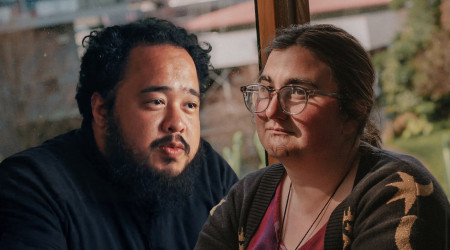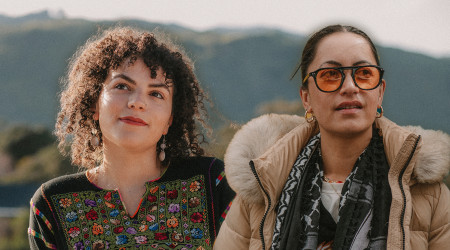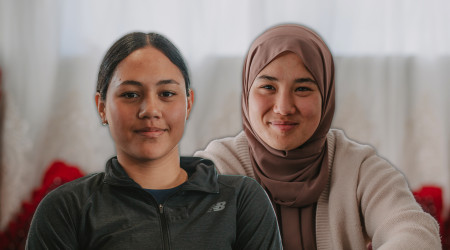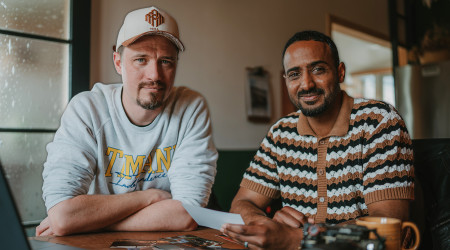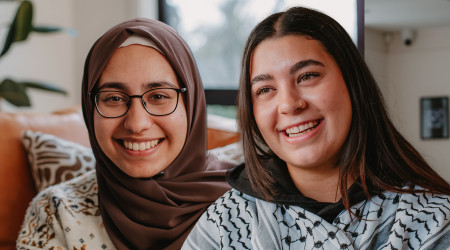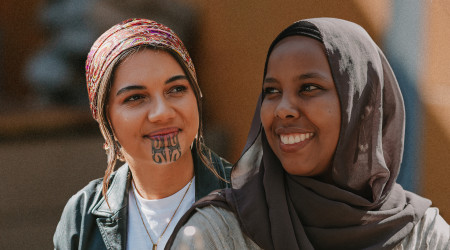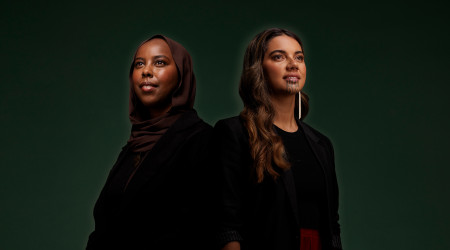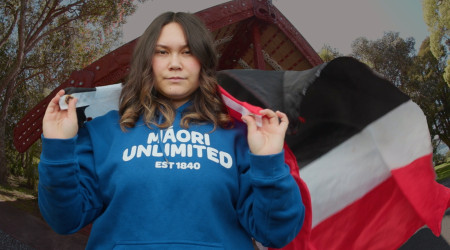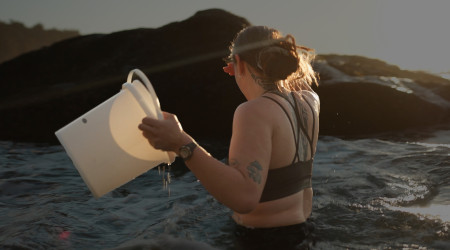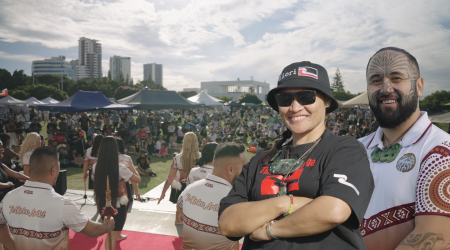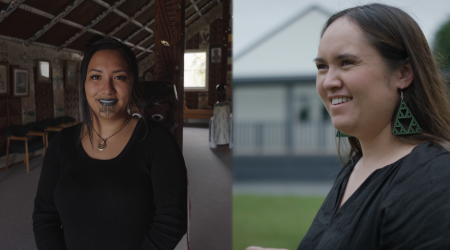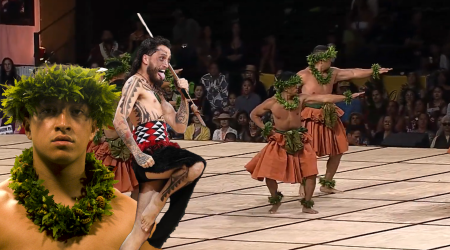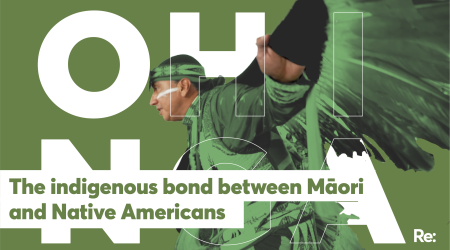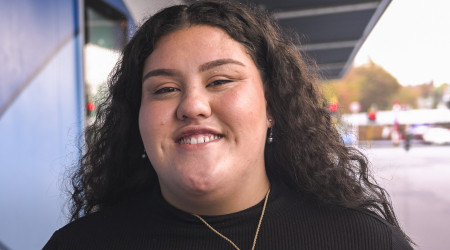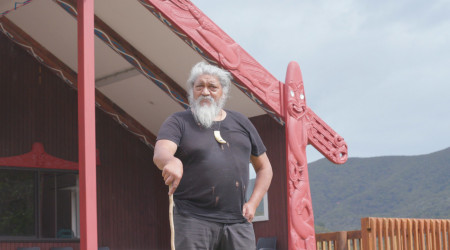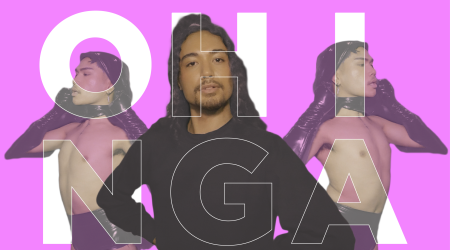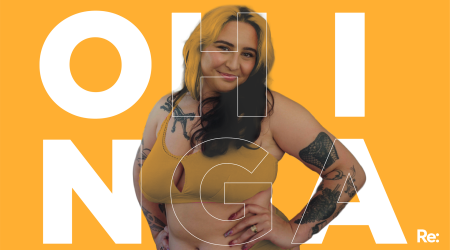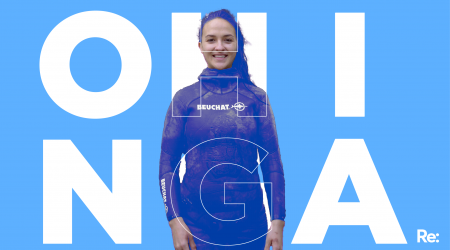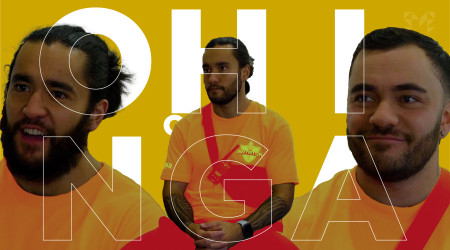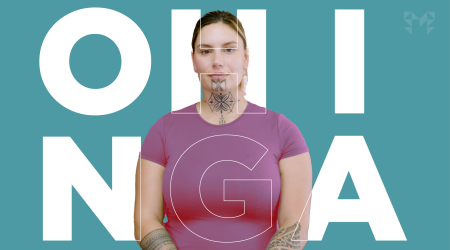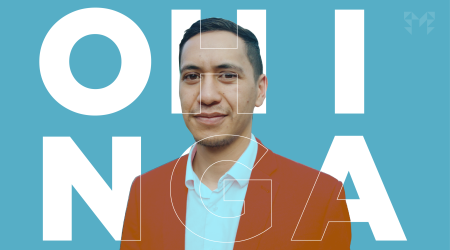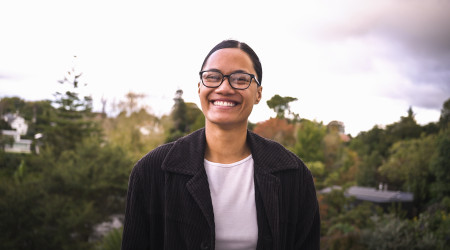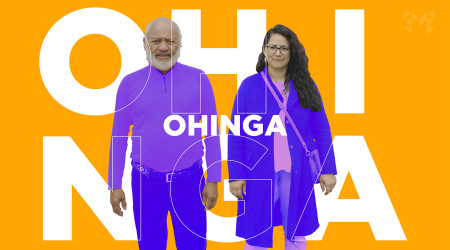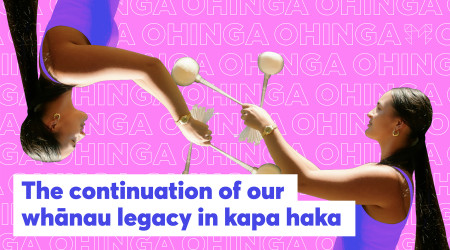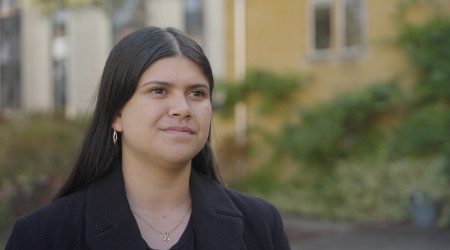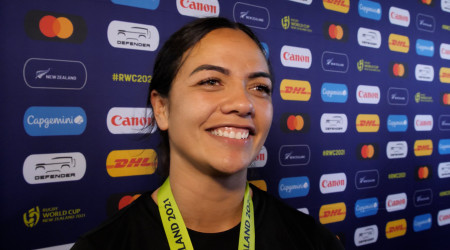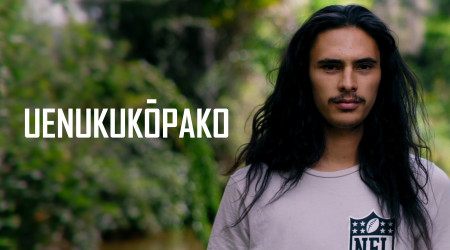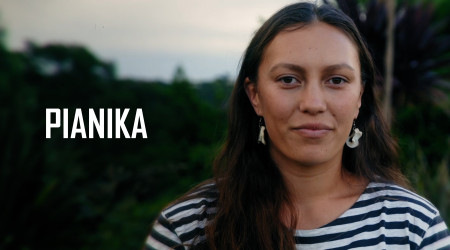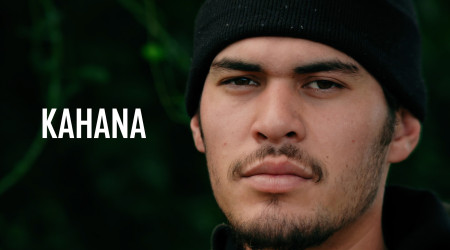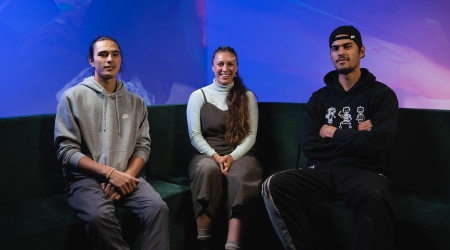Te Ao Māori
How these Muslim and Māori musicians honour their whakapapa through music
‘I think something really special about our friendship is that we don’t have the same background.’
A Palestinian and a Māori artist on how their art is a form of activism
‘It's been a way for me to reflect my compassion and solidarity.’
How these Māori and Muslim footballers are kicking stereotypes
‘We should be able to play any sport regardless of what you see other people of our culture doing.’
A Muslim and a Māori photographer share their culture through their cameras
‘All of my work promotes, celebrates, and shows the beauty of the Māori world.’
How we find forgiveness and gratitude after tragedy
‘It's this overwhelming realisation that people can be kind without any barriers.’
What ‘belonging’ means to two poets who grew up away from their tūrangawaewae
‘Poetry has really created a voice for me.’
In this new series, Māori and Muslims share their stories to connect
Ahi Wānanga explores what identity, belonging and resilience is to 12 Muslim and Māori young people.
Growing up in Waimā as a Waitangi performer
‘Sometimes being on the grounds feels mamae.’
Growing up in New Zealand’s most isolated hapū
This marae is three hours’ drive from the nearest town.
Māori celebrate Matariki in Australia
Ohinga visited the first Matariki festival on the Gold Coast.
Life as a Māori translator
"It must be translated with intention."
Hula and haka at an elite competition in Hawai’i
“Haka and hula are a taonga”
The indigenous bond between Māori and Native Americans
“We’re proud and we’re here today because of the resilience our ancestors instilled in us.”
Māori Millionaire’s finance tips
Te Kahukura shares some of her top tips to help you reach your financial goals.
Surviving on Great Barrier Island means living off the land
”Grandad always said, you gotta be a useless bugger if you go hungry here.”
What a decade of ballroom means for LGBTTQIA+ Māori
Ballroom culture has just celebrated 10 years in Aotearoa.
Māori stories on endometriosis
“It becomes a part of your brand as a person. ‘Oh Jade has endo’.”
Empowering wāhine through connecting to the ocean
“It’s made everything even more deep and meaningful. You’re carrying an ocean inside you.”
Mātātoa: the CrossFit comp blending fitness with te reo
Mātātoa is the first Māori language CrossFit event in the country.
How the art of Tātatau is empowering indigenous wāhine in Australia
“Tātatau is so important to me because it’s something I don’t just wear, but it’s something I live.”
Reclaiming our traditions by not using a surname
“The thing that I don’t agree with is that Māori have to have a last name, that is wrong”.
Rangatahi talk financial goals
Honey Ellis (Tainui, Ngāti Kahungunu) is a social worker turned TikTok educator.
An indigenous system that saw the foresight of the floods
From the Auckland floods to Cyclone Gabrielle, Aotearoa has been hit hard by extreme weather events.
The continuation of our whānau legacy in kapa haka
“Matatini is the perfect platform for young Māori to showcase our amazing culture to the world.”
A 'birthplace of pain': What it means to be Māori and studying in England
"Gather the knowledge of Pākeha to compliment the knowledge of your ancestors.”
How the Women’s Rugby World Cup embraced te ao Māori
“I hope Aotearoa keep backing us because we need them.”
Uenukukōpako: Whānau Episode 1
Watch the first episode of Whānau, the latest installment in this very special documentary series.
Pianika: Whānau Episode 2
“I realised how colonised I was…and I didn’t like it”
KaHana: Whānau Episode 3
“I can’t speak Māori, but I can feel it.”
He Kohinga Whakaaro: Whānau Episode 4
“I think we’re the kind of product of how they (Māori whānau) do raise babies and it’s amazing.”
